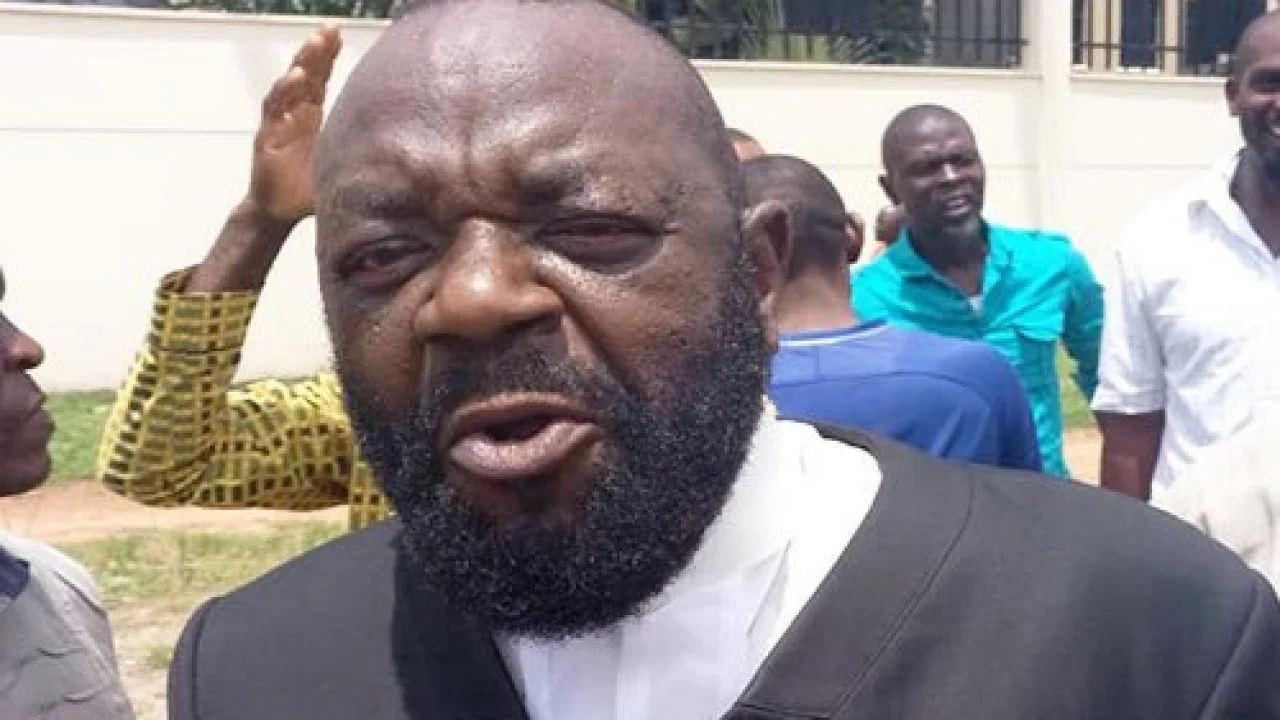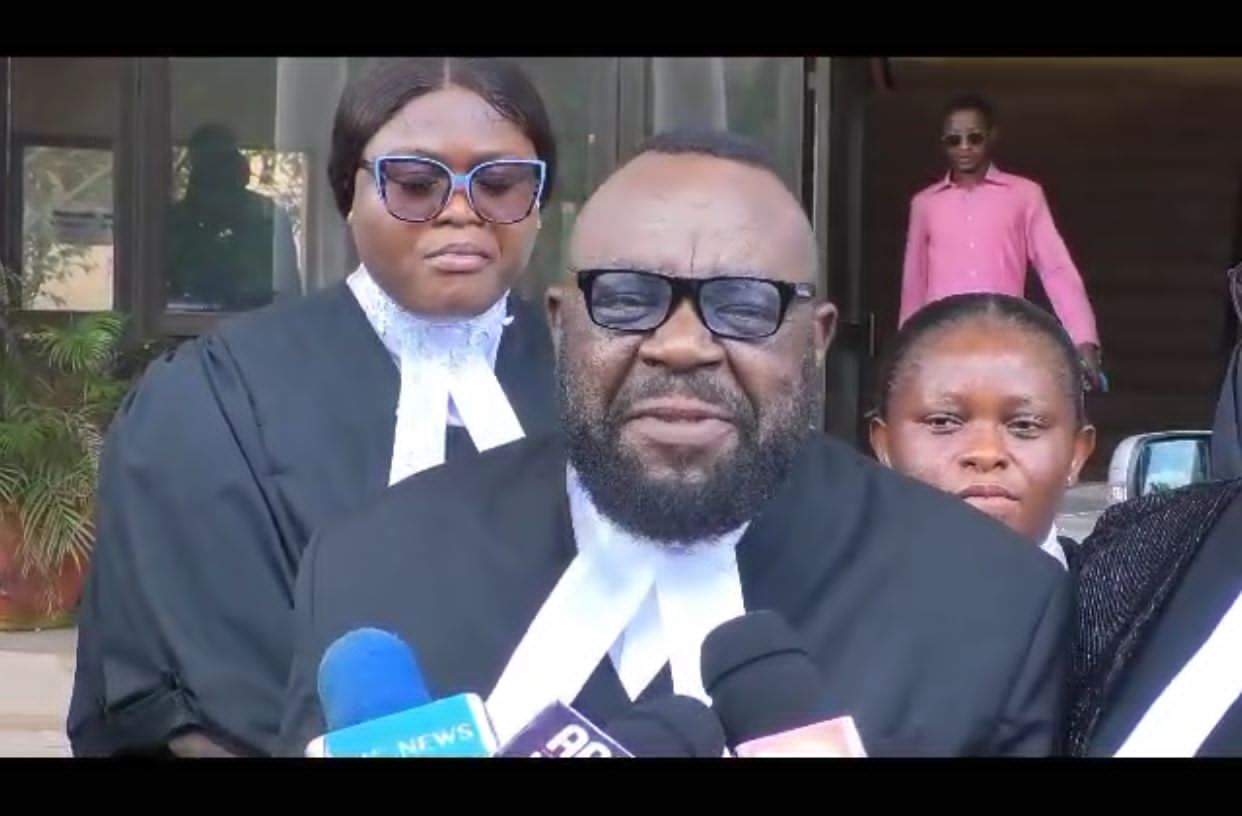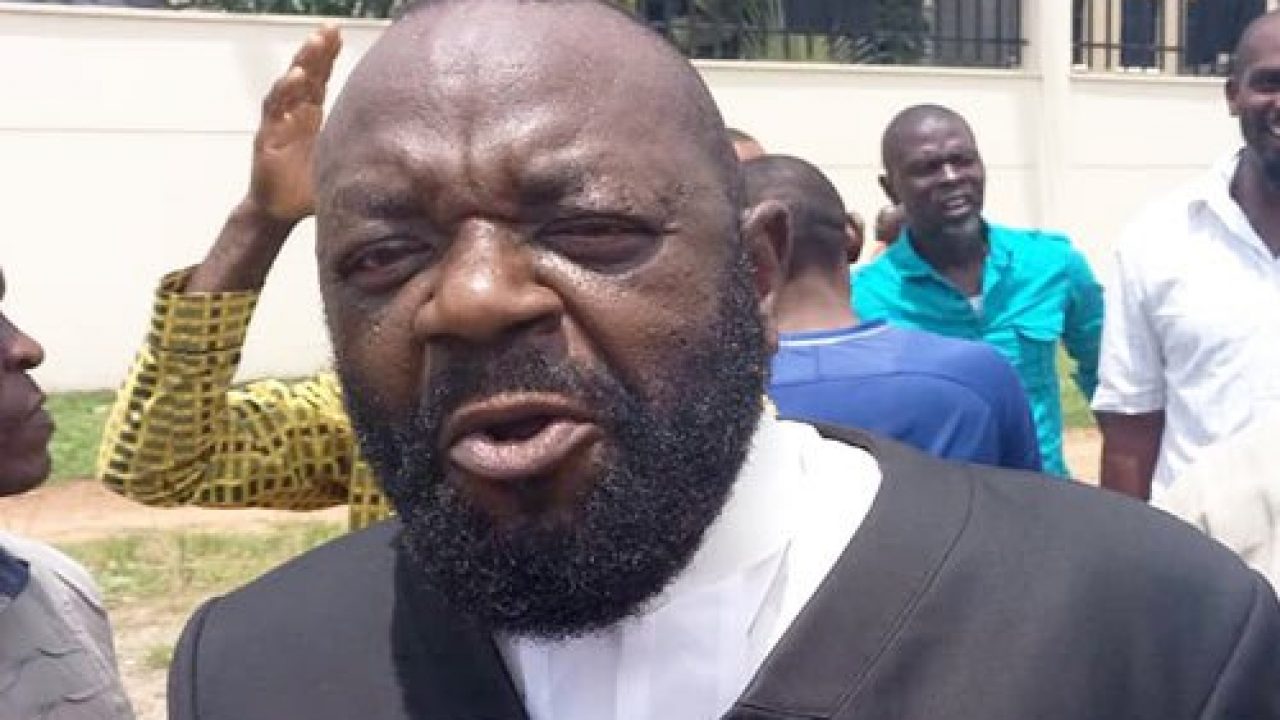Aloy Ejimakor, the Special Counsel to Nnamdi Kanu, leader of the Indigenous People of Biafra, IPOB, has dragged the Nigerian Government before the British House of Lords over the detention and prosecution of the agitator.
Ejimakor, in a petition to the British House of Lords, called for intervention in the torture, rendition and incarceration of Kanu by the Nigerian Government.
He urged the British Parliament to sanction the Nigerian Government if it fails to release Kanu unconditionally and repatriate him to the United Kingdom, UK.
The Special Counsel made the appeals in a petition to the International Relations and Defence Committee of the House of Lords.
Ejimakor, in the petition, stressed that Kanu is a British citizen.
Parts of the petition, signed by Ejimakor, reads: “Additionally, Mr Kanu is gravely ill with three life-threatening conditions, namely a serious heart condition, hypertension and low potassium levels. All of these serious conditions demand specialist medical care and interventions that are not available at the facility where he is being detained or even in Nigeria as a whole. And the Government of Nigeria (GON) is fully aware of this.
“I. Urgently intervene with His Majesty’s Government, strongly urging it to promptly make demands on the GON to unconditionally release Mr Kanu from detention and repatriate him to the United Kingdom; and to levy sanctions against the GON if it fails to comply within a reasonable time. It is pertinent to stress the point that extraordinary rendition inherently destroys every prospect for a fair trial in the jurisdiction that levied the rendition. And UK courts have held in a plethora of cases that extraordinary rendition creates a barrier to the trial of a suspect.
“This was precisely the reason the United Kingdom had, in 1984, denied Nigeria’s formal application to extradite Umaru Dikko after his aborted extraordinary rendition from the UK. In our humble view, Mr Kanu’s is no different, except that his case bears more equities because of his British nationality, as compared to Mr Dikko who was not a British citizen. Additionally, extraordinary rendition is – by itself – a form of torture that should shock the conscience of the Parliament, especially when considered together with the actual physical torture levied on Mr Kanu by agents of the GON in Kenya and the solitary confinement to which Mr Kanu has been subjected to in Nigeria since June 2021. It is settled that torturing a British citizen overseas triggers the universal criminal jurisdiction of British courts.
“In alternative to above, Your Lordships are prayed to promptly intervene with His Majesty’s Government, strongly urging it to make binding proposals to the GON to agree to conduct Mr Kanu’s trial in the United Kingdom. In addition to the fact that all the charges leveled against Mr Kanu by the GON are alleged to have been committed by him from British soil, there are other legal reasons why Mr Kanu should be tried in the UK rather than Nigeria. These reasons include the following:
“Nationality and Citizenship: Mr Kanu is a dual citizen of Nigeria and the United Kingdom. As a British citizen, he has the right to seek legal protections from the UK government, which includes demanding that the UK be the venue for his trial.
“Human Rights Concerns: There are genuine concerns about the human rights situation and the treatment of defendants in Nigeria. Given Mr Kanu’s British citizenship, he would be more likely to receive a fair trial and be treated in accordance with international human rights standards if the trial is held in the UK.
“Diplomatic Considerations: The UK and Nigeria have a history of good diplomatic relations. Thus, the UK should have an interest in ensuring that one of its citizens receives fair treatment in a criminal trial, not conducted in Nigeria but in the UK.
“Security and Safety: We have real concerns about the security and safety of Mr Kanu, including particularly potential threats to his life in Nigeria, evidenced by GON’s military operations against Mr Kanu in 2017, the extraordinary rendition in 2021, the physical torture in Kenya and the persistent solitary confinement in Nigeria.
“Fair Trial/Political Interference: There are concerns about political interference in the legal process in Nigeria. A trial in the UK should mitigate these concerns, as well as ensure that the legal proceedings are fair and free from undue political influence. There is also every likelihood (as has happened before) that the GON will not abide by acquittal of Mr Kanu by a Nigerian court.
“In alternative to Paragraph 2 above but for the same reasons stated therein, the Parliament may intervene with His Majesty’s Government, urging it to make binding proposals to the GON to agree to conduct Mr Kanu’s trial in a mutually agreed neutral third country (other than Nigeria and the UK), as was done in the Lockerbie trial of Libyan nationals.
“Esteemed Members of House of Lords, our decision to lay this Petition before you was propelled by the undue levity with which His Majesty’s Government has so far handled this matter. Mr Kanu believes that he has not been accorded the full legal and diplomatic protections he is entitled to as a bonafide British subject. We trust therefore that this Petition will be given the most urgent and expeditious attention and due considerations by the House of Lords.”
Nnamdi Kanu’s lawyer drags Nigerian Govt before British Parliament, wants IPOB leader repatriated to UK



